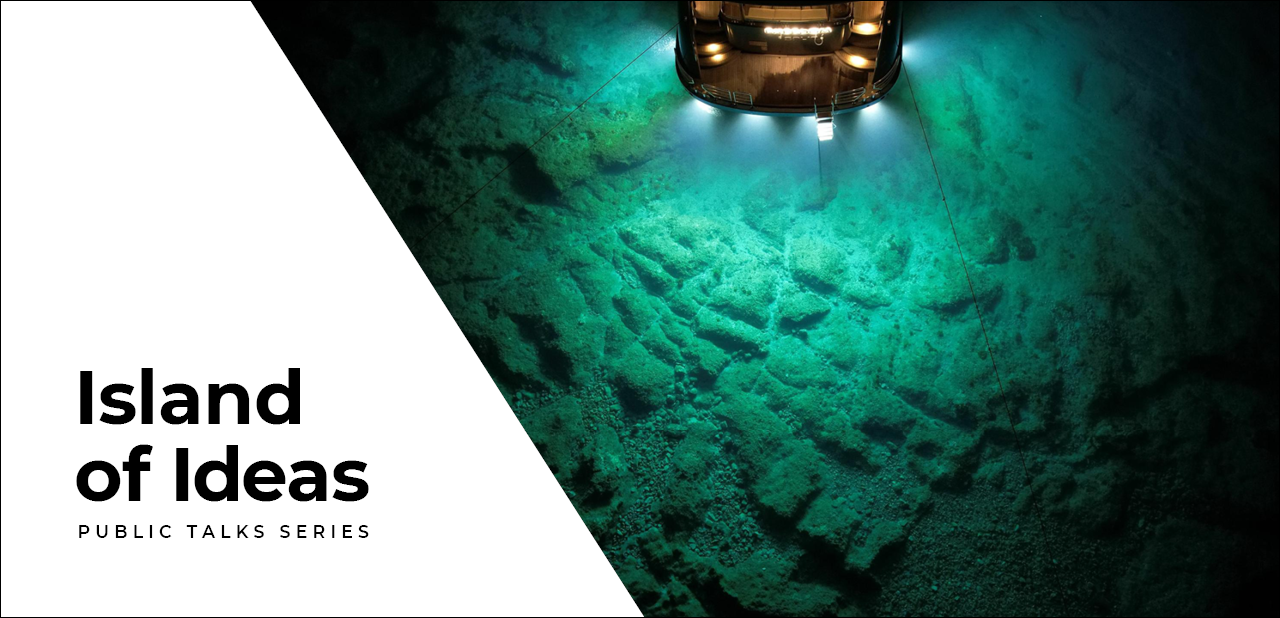Online and the Sir Stanley Burbury Lecture Theatre, Dobson Road, Sandy Bay
Summary:Explore the secrets of the deep sea, where extraordinary creatures defy logic, microscopic organisms hold the keys to our planet's past and present, and urgent questions about the future of marine habitats loom large.
Presenter(s):
- Professor Tony Rathburn, Professor of Geological Sciences, California State University, Bakersfield
- Hosted by Zanna Chase, Professor of Chemical Oceanography at the University of Tasmania
 Journey with our expert to hear about his visits to Earth’s biggest, deepest and most mysterious habitat. Learn about 3-metre-long worms with no mouth, anus or gut, dancing crabs, and tiny critters that provide big clues about our planet’s environmental changes.
Journey with our expert to hear about his visits to Earth’s biggest, deepest and most mysterious habitat. Learn about 3-metre-long worms with no mouth, anus or gut, dancing crabs, and tiny critters that provide big clues about our planet’s environmental changes.
Pre-event refreshments
Head to the venue early and enjoy complimentary refreshments from 5.30pm.
Attend online
Prefer to watch from the comfort of home? Get tickets for the online event via Zoom.
Subscribe
Find out about future events, and subscribe to our mailing list for Island of Ideas updates!
Attend online Attend in-person
Professor of Geological Sciences, California State University, Bakersfield; Research Associate Scientist, Scripps Institution of Oceanography; Interim Director California Energy Research Center
Professor Tony Rathburn has participated on over 50 marine research expeditions, conducting research in a variety of seafloor environments, including those near Alaska, Antarctica, Australia, Borneo, California, Chile, Costa Rica, Iceland, Italy and Peru. Some of these expeditions used manned submersibles to carry scientists to the seafloor at depths of up to 4500 meters (about half the height of Mount Everest), where they sample and explore deep-sea environments.
Tony’s research focuses on the ecology, biogeochemistry and micropaleontology of marine environments, including deep-seafloor methane seeps that support strange and unusual creatures. His research addresses issues related to climate change, marine biodiversity, marine pollution, and environmental changes of the past, present, and future.
Tony is visiting Hobart to conduct research at the University of Tasmania’s Institute for Marine and Antarctic Studies (IMAS) and visit family as part of a year-long sabbatical leave.
Professor of Chemical Oceanography, University of Tasmania
Professor Zanna Chase works within the Oceans and Cryosphere Centre at the Institute for Marine and Antarctic Studies. Her research focuses on the interaction between chemical cycles and biological activity in the oceans, and how these are affected by climate. Understanding of these interactions, both in the modern ocean and the paleo-ocean, is necessary to predict the oceans' response and contribution to future climate change. She is particularly interested in the role of the Southern Ocean in long term climate change. In her research, Zanna applies a variety of geochemical proxies in sediment cores, including long-lived, naturally occurring radioisotopes to reconstruct particle flux, and redox-sensitive metals to reconstruct ocean oxygenation. She is also involved in research to improve our understanding of trace metal proxies used in paleoceanography, primarily through participation in the international GEOTRACES program. Zanna is active in research leadership at the University of Tasmania, having served on the IMAS Research Committee for many years, and as the Associate Head of Research for IMAS from 2019 to 2021. Zanna is a sea-going oceanographer, and has participated in over 22 research voyages, many with leadership roles. Her research is complemented by teaching in oceanography and biogeochemistry.